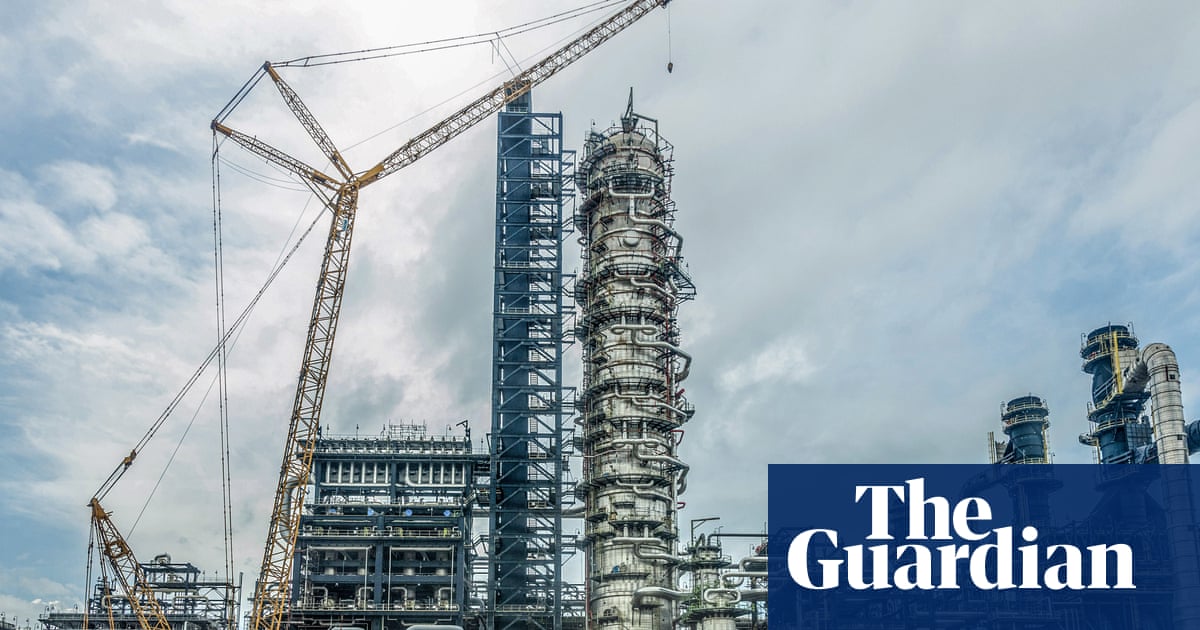On the outskirts of Lagos sits Africa’s largest oil refinery, and beside it, the continent’s biggest fertiliser plant. Armed men guard the gates and the perimeters are lined with floodlights and security cameras.
Owned by Dangote Industries, a multinational conglomerate founded by Aliko Dangote, Africa’s wealthiest person, the compounds are in the Lekki free trade zone, abutting the Atlantic Ocean about 30 miles outside Nigeria’s commercial capital. The zone was designated by the federal government to develop industry and jobs.
The $2.5bn (£2bn) urea and ammonia plant opened in 2022 and the $21bn refinery opened last May and began production in January. Dangote and the government, which has a 20% stake, hope this will make Nigeria less dependent on expensive imported petroleum “and stop, once and for all, the dumping of substandard petrol products in our markets”, Dangote said in a televised speech last year.
People living near the site were happy about the developments when they were first mooted a decade ago, says Tajudeen Ismaila, 35. But the mood has changed. “We prayed for development, and we didn’t expect it to come in this form,” he says.
Thousands of people from the Ilekuru, Idasho, Okesegun, Okeiyanta and Magbonsegun communities have been evicted from ancestral lands by state authorities to make way for the development.
Local people say they were promised new schools, electricity, boreholes, jobs and compensation agreed in an MOU signed between the Lagos state government, the Ibeju Lekki local government, the trade zone managers and 12 community groups in 2007, which they understood covered all development in the area. But those the Guardian spoke to say they have received school textbooks, school tuition fees, and less than 81,000 naira (£43) in compensation.



From the article: